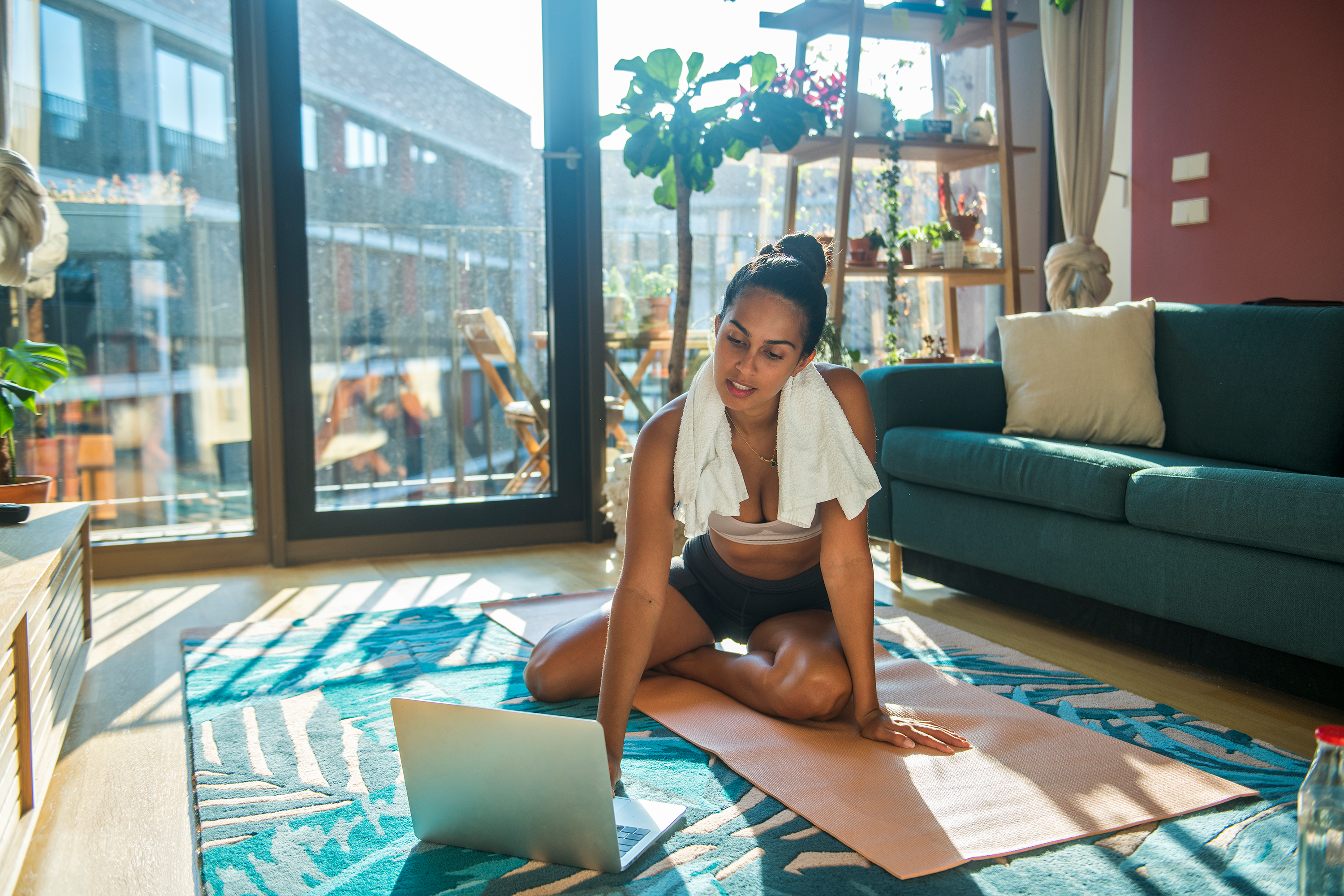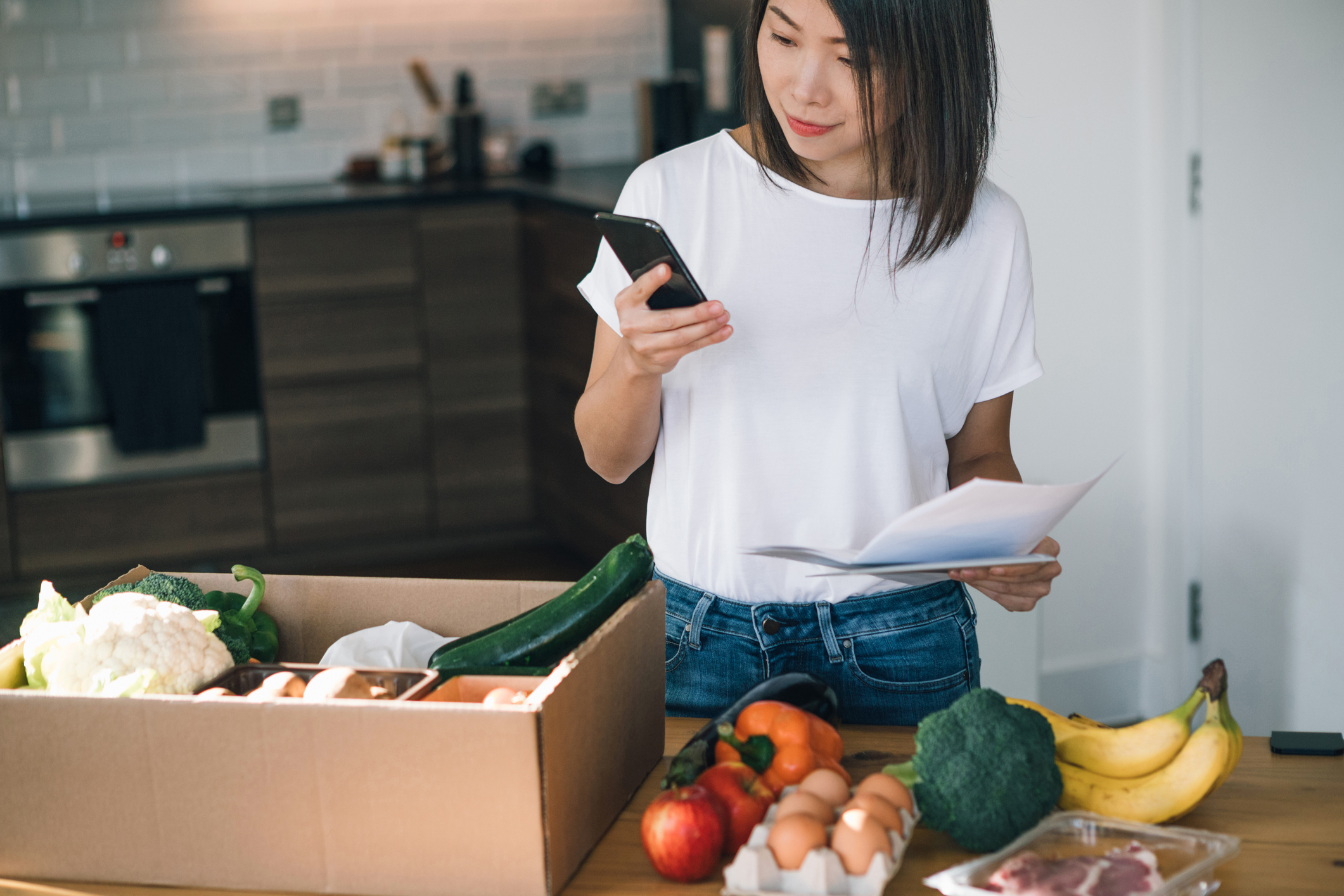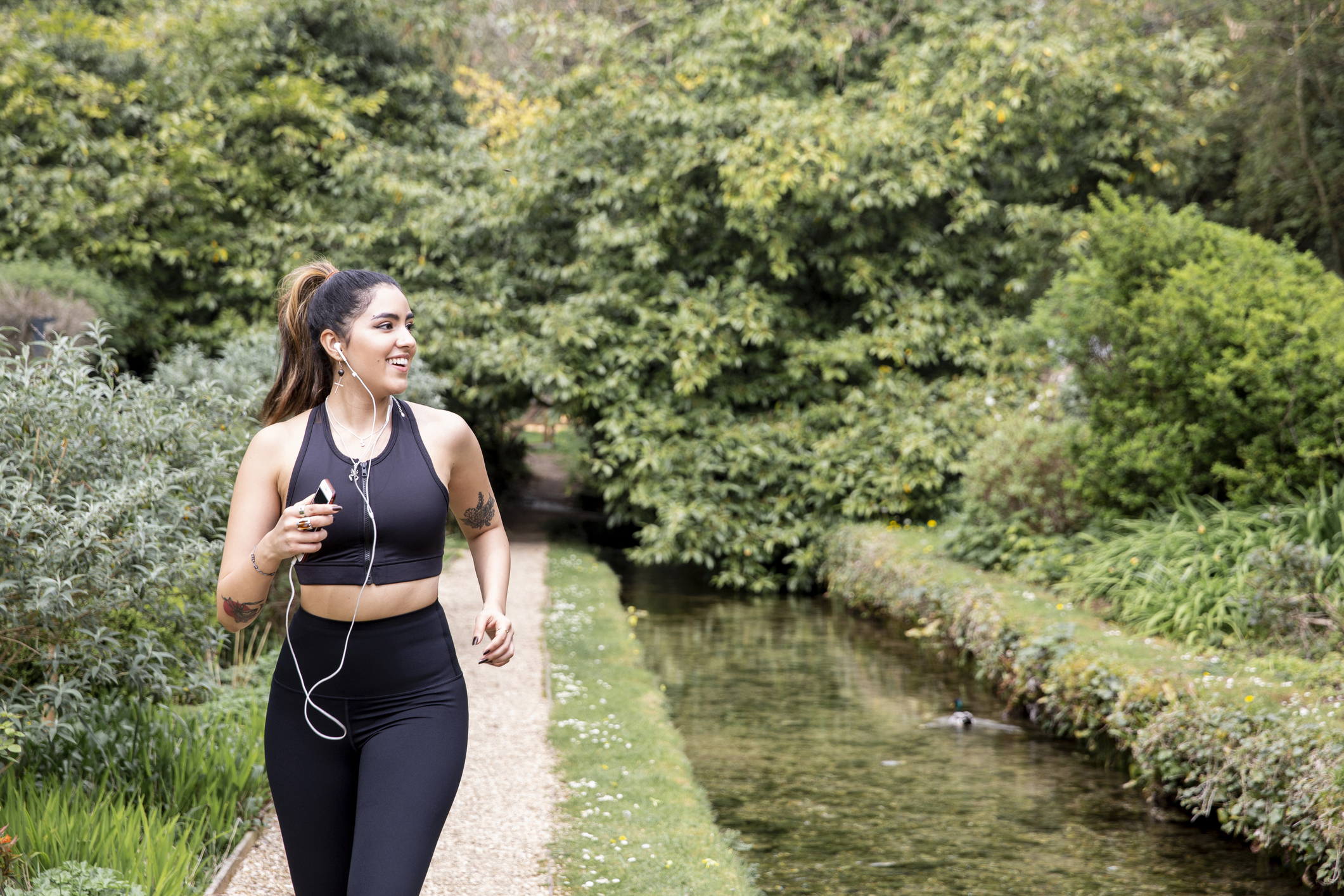Lockdown weight gain: How to lose quarantine weight quickly and healthily


Lockdown weight gain is an issue that has affected most of us, with research revealing that over 40% of adults in England gained weight during the pandemic.
It's safe to say that food was a comfort to many during the numerous UK lockdowns - with fancy home-cooked meals, banana-bread baking and the joy of FINALLY being able to order a takeaway again, being things the British public all indulged in during a difficult year. All this comfort eating however has had quite the universal impact on the population though. As one Public Health England survey found that adults across the country experienced an average weight gain of 3kg (or half a stone) during lockdown.
As a return to normalcy begins, many are seeking ways to remedy the effects from staying indoors. With lockdown ageing and quarantine weight gain two things many are keen to reverse. With this in mind, we asked the experts about diets that work fast, how to up our fitness and lose fat from our bellies and bodies post lockdown.
How to reverse lockdown weight gain and lose quarantine weight
Personal trainer Daniel Carpenter from Common Purpose Club says that while it's easy to get tempted "by quick fixes and rapid weight loss programs", it’s not worth it in the long run. If you want to reverse lockdown weight gain for the long-term, you should avoid "a yo-yo pattern with diet and exercise."
Instead, he suggests thinking of weight loss “in months and years, as opposed to days and weeks.”
Here's what to do to reverse lockdown weight gain:
Make sure you’re in a calorie deficit
Being in a calorie deficit is the first step of weight loss and it basically means consuming fewer calories than your body needs to stay at its current weight.
Parenting advice, hot topics, best buys and family finance tips delivered straight to your inbox.
“Ways to do this are monitoring food intake and ensuring you are eating in a calorie deficit.” Personal trainer Martin Hamer from The Training Room explains, “Include resistance training a minimum of twice a week to build some lean body mass. This will help you to expend more calories on a daily basis.”
You can use free apps like MyFitnessPal to track your calories quickly and easily.
And while the larger the deficit, the quicker the weight loss, it’s important to remember that the changes you make in your diet need to be sustainable to avoid just regaining the weight in future.

To find out how many calories you need to eat to be in a calorie deficit, use a calculator like this one, which uses details to work out the number of calories you should eat everyday for weight loss and maintenance.
Ensure you're being consistent
Progress doesn’t just happen overnight, no matter how hard you try, our experts say. “Consistency and adherence need to be the foundation for everything else.” PT Daniel says, “This means setting small and sustainable changes that are both familiar and predictable to you, the individual.”
If you were a keen gym-goer before the lockdown but weren’t one for online workouts at home, it’s also important to recognise that the consistency at which you’ll now exercise is likely to change.
“Prior to the pandemic, if you were exercising around 6 times per week, I would advice easing yourself in and setting a target of 3 workouts per week, to build your fitness levels and back to the way you were training previously.” Haydn Elliott, head trainer and co-owner of F45 Oxford Circus, explains.
This way, you can keep up consistency by avoiding injury from overtraining and going too hard, too soon.

Get good quality sleep
Sleep has been a huge talking point throughout the lockdown, with insomnia and vivid dreams topping the list of sleep problems caused by the pandemic. Sleep is vital when you’re doing more day-to-day and will be key if you're trying to reverse lockdown weight gain.
As trainer Haydn explains, “When returning to more intense training structures, you must also focus on getting good quality sleep, at least 7-9 hours. Your body is going to really feel the effects of this increased intensity, so you need to give yourself time to recover.”
He adds, “As well as sleep, you must ensure that you are properly hydrating with several litres of water throughout the day and nourishing your body with an adequate protein intake.
“I would give this same advice to people who have never worked out before as well. People have been fairly inactive throughout the lockdowns, so everyone is starting their own journey again. Now is the time to leave your pride at the door and try to enjoy the process rather than getting too focused on aesthetics.”

Avoid the classic weight loss mistakes
Over the course of losing weight, lots of people find that their diets aren’t working and they’re just not losing any more weight. While this can be pinned down to many things, including entering a weight loss plateau - where the body has acclimatised to the calorie deficit - knowing the pitfalls to avoid in advance is a good step.
“One of the biggest pitfalls is overindulging and snacking when you don’t actually require the calories.” Trainer Hasit Jethwa says, “Higher carb intake and reduction in protein intake when you are sitting at home and/or working away is something you should be careful to avoid.
“Carbs are generally very easy and quick to consume, and it is what most people tend to do which leads to a surplus of calories, as you are not utilising them as much being less active.”
But going too far the other way is also a common mistake. “Don’t assume you can do what you did before lockdown and avoid comparing yourself to that; you’ll no doubt have lost strength if you have been away from training and gym equipment, and you’ll also have lost some endurance if you have not been doing cardiovascular work.” Hasit warns, instead take these points into account account and set small targets to progress.
He adds, "You’ll find that the more active you were before and during lockdown, the quicker you’ll be able to get back to where you once were.”
Change your mindset
While it can be difficult to brush away the looming post-lockdown pressure don’t attach your self worth to a number on the scale.
As PT Daniel says, “You are not just your weight. Wanting to lose weight to look and feel better, and become fitter and healthier, are endeavours that we highly encourage. But try (as best you can) to emotionally detach yourself from the weight on the scale.
“We understand this is really difficult, but just view your weight as a data point that provides feedback. You can use this feedback to adjust your daily practices. It’s a massive process of trial and error, but as long as you stick with it...you can’t fail!”
Psychologist and therapist Şirin Atçeken also told GoodtoKnow that as well as not putting pressure on ourselves as we leave lockdown in general, it's important to rebuild our confidence in ways that doesn't just involve weight loss.
"Exercise is excellent for good mental health, positive mental attitude and making us feel energised, but it can be difficult when we aren’t feeling our best. Make a small plan and understand what works for you." She says, "This could be regular walks, a 30 min exercise session, calorie counting or yoga. These activities will provide instant boosts of energy and motivation, and leave you feeling great, and more confident.

"I would also recommend buying some new clothes, or readdressing your wardrobe and pull out your favourite clothes." Şirin says, "Loungewear is great, but it doesn’t do our mental health any favours, and makes us feel bigger than we are. Buying new clothes, or trying on existing ones that you haven’t had a chance to wear this past year will instantly boost your confidence, and help you rediscover your style, which is all part of the fun.
"It’s really important that you don’t link your self confidence and worth to your weight, and realise what great qualities you have. Write down on a piece of paper all of your great qualities - or better yet, get someone else to write them down, and you do the same for them. Whenever you feel low, or sad, look at the list to help perk you up and make you feel better."
Ask for help when you need it
Whether you’re itching to get back on the treadmill or looking to venture into the world of back garden HIIT workouts to help shift any unwanted lockdown weight gain, professional help can really make the difference.
Personal Trainer Daniel suggests asking an expert “who is experienced in helping people through the weight loss journey”. Not only will they help you create a plan but you’ll also “have someone to hold you accountable and provide advice or guidance when things get tough.”

Grace Walsh is a health and wellbeing writer, working across the subjects of family, relationships, and LGBT topics, as well as sleep and mental health. A digital journalist with over six years experience as a writer and editor for UK publications, Grace is currently Health Editor for womanandhome.com and has also worked with Cosmopolitan, Red, The i Paper, GoodtoKnow, and more. After graduating from the University of Warwick, she started her career writing about the complexities of sex and relationships, before combining personal hobbies with professional and writing about fitness.